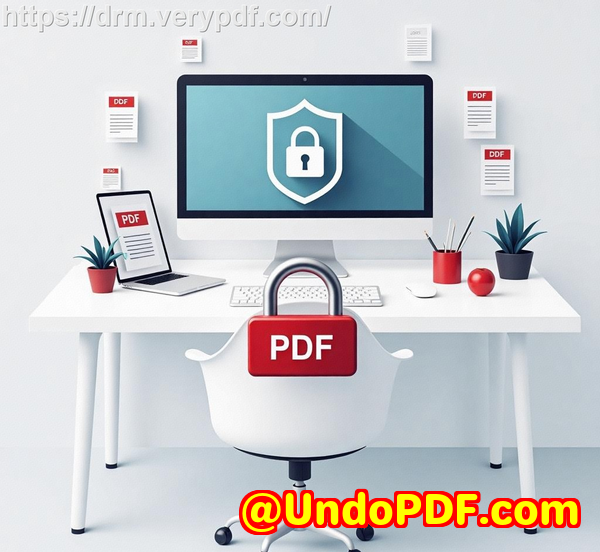Bank Mandiri Bank Statement PDF to Excel, CSV, JSON Conversion Guide with AI Table Extraction for Financial Analysts and Corporate Reporting Automation
Bank Mandiri Bank Statement PDF to Excel, CSV, JSON Conversion Guide with AI Table Extraction for Financial Analysts and Corporate Reporting Automation
Managing hundreds of Bank Mandiri PDF statements used to be my Monday morning nightmare. I’d sit there, scrolling through endless pages, copying transaction tables into Excel, and double-checking numbers for accuracy. Hours would slip away before I could even start analysing the data. If you’ve ever wrestled with manual PDF bank statement conversions, you know exactly how frustrating it can be.

That’s when I discovered VeryPDF Table Extractor, and honestly, it changed the game for me. This tool isn’t just another PDF converterit’s a full-scale AI-powered assistant that transforms messy bank PDFs into clean, structured Excel, CSV, or JSON formats in seconds. For anyone handling financial reports, corporate accounting, or banking data analysis, this is the kind of tool that makes you wonder how you ever managed without it.
VeryPDF Table Extractor works with PDF statements from thousands of banks worldwide, including Bank Mandiri. The platform automatically recognises tables, dates, amounts, and transaction details, then converts them into formats that are ready to import into your accounting software or ERP system. It’s fully web-based, so there’s no software installation, and all files are processed with bank-grade encryption.
One feature that immediately stood out to me was batch conversion. Previously, I would spend hours opening each PDF, copying tables, and cleaning up Excel sheets. With VeryPDF Table Extractor, I simply upload multiple PDFs, choose Excel or CSV as the output format, and the system handles the rest. I remember a project last month where I had 120 Mandiri statements to process. Using traditional methods, I would have spent nearly two full workdays. With VeryPDF, it was done in under 15 minutesno errors, no stress.
Another feature I can’t live without is the AI table recognition. Many banks, including Mandiri, have statements with inconsistent layouts. Before, I’d spend extra time adjusting columns in Excel to match each bank’s format. VeryPDF’s AI automatically detects tables and keeps the formatting consistent, whether it’s a simple list of transactions or a complex multi-page report. The first time I saw it convert a password-protected statement flawlessly, I honestly did a double take. It handled a task I used to dread in seconds.
Security is another huge selling point. Every connection is 256-bit encrypted, and files are automatically deleted after conversion. As someone who handles sensitive financial data daily, this gave me peace of mind. I don’t have to worry about leaks or breaches, which is a relief compared to some other online converters I’ve tried in the past.
I also appreciate the flexibility in output formats. Whether I need an Excel sheet for quick reporting, a CSV for ERP import, or JSON for integrating into dashboards, VeryPDF Table Extractor has me covered. This versatility makes it perfect for financial analysts, corporate accountants, and anyone involved in automation of reporting workflows. It’s also compatible with desktop, tablet, and mobile devices, so I can work on the go without installing any software.
Compared to other tools I’ve used, VeryPDF Table Extractor simply wins on speed, accuracy, and usability. Many other converters struggle with password-protected PDFs or multi-page statements, often requiring manual fixes after conversion. With VeryPDF, almost every file comes out clean and structured, which saves me hours of editing and reduces the risk of errors in financial reports.
The platform also shines when it comes to integration with corporate workflows. For example, I can import bank statements directly from email, Dropbox, Google Drive, or Microsoft Dynamics. Once the data is converted, it’s easy to sync with ERP systems and reconcile transactions automatically. This level of automation has reduced my accounts payable processing time by at least five times. The combination of AI table extraction and batch processing has effectively eliminated the bottleneck in my reporting workflow.
For anyone dealing with corporate finance, accounting, or auditing, VeryPDF Table Extractor is a productivity booster. I’d highly recommend this to anyone who handles high volumes of PDF statements and needs clean, structured data in Excel, CSV, or JSON formats. The tool takes the frustration out of financial data management, letting you focus on analysis and decision-making instead of tedious manual entry.
Click here to try it out for yourself: https://table.verypdf.com/
Start your free trial now and see how much time you can save.
VeryPDF offers comprehensive custom development services for organisations with unique technical needs. Whether you require tailored PDF processing tools for Linux, macOS, Windows, or server environments, VeryPDF’s team can design solutions using Python, PHP, C/C++, Windows API, Linux, Mac, iOS, Android, JavaScript, C#, .NET, and HTML5.
They specialise in creating Windows Virtual Printer Drivers capable of generating PDF, EMF, and image formats, and tools for capturing and monitoring print jobs. This includes intercepting and saving print jobs from all Windows printers into PDF, EMF, PCL, Postscript, TIFF, and JPG formats. VeryPDF also provides system-wide and application-specific API hooks to monitor Windows file access and other operations.
Their expertise extends to analysing and processing various document types, including PDF, PCL, PRN, Postscript, EPS, and Office files. They offer technologies for barcode recognition, layout analysis, OCR, and OCR table recognition for scanned TIFF and PDF documents. Additional services include generating reports and document forms, converting images, and managing document workflows. Cloud-based solutions for document conversion, viewing, and digital signatures are also available, along with technologies for PDF security, DRM protection, TrueType font handling, and Office/PDF printing.
For custom solutions tailored to your organisation’s needs, reach out to VeryPDF through their support centre at https://support.verypdf.com/.
FAQs
1. How do I convert a Bank Mandiri PDF statement to Excel or CSV?
Simply upload your PDF using the drag-and-drop interface, select Excel (.xlsx) or CSV as the output, and click Convert. Your file downloads automatically in seconds.
2. Can I convert multiple statements at once?
Yes. The batch processing feature allows you to upload and convert multiple PDFs simultaneously, saving hours of manual work.
3. Are password-protected statements supported?
Absolutely. VeryPDF Table Extractor can handle password-protected statements and extract tables accurately.
4. Which banks are supported?
The tool works with statements from over 600 banks worldwide, including Bank Mandiri. If your bank isn’t listed, you can request support, and they’ll add it, often within two business days.
5. How secure is my data during conversion?
Your files are encrypted with 256-bit bank-level security and automatically deleted after processing. VeryPDF never stores or shares your financial information.
6. Do I need to install software?
No installation is required. VeryPDF Table Extractor is entirely web-based and works on desktop, tablet, or mobile devices.
7. What if a conversion fails?
If your file doesn’t convert as expected, check it’s a genuine PDF bank statement. If issues persist, contact VeryPDF supportthey’ll fix it promptly.
Tags/Keywords
Bank Mandiri PDF to Excel, Bank statement conversion, PDF to CSV, AI table extraction, financial reporting automation, PDF bank statement converter, corporate accounting tools, VeryPDF Table Extractor, batch PDF conversion, secure bank statement processing



